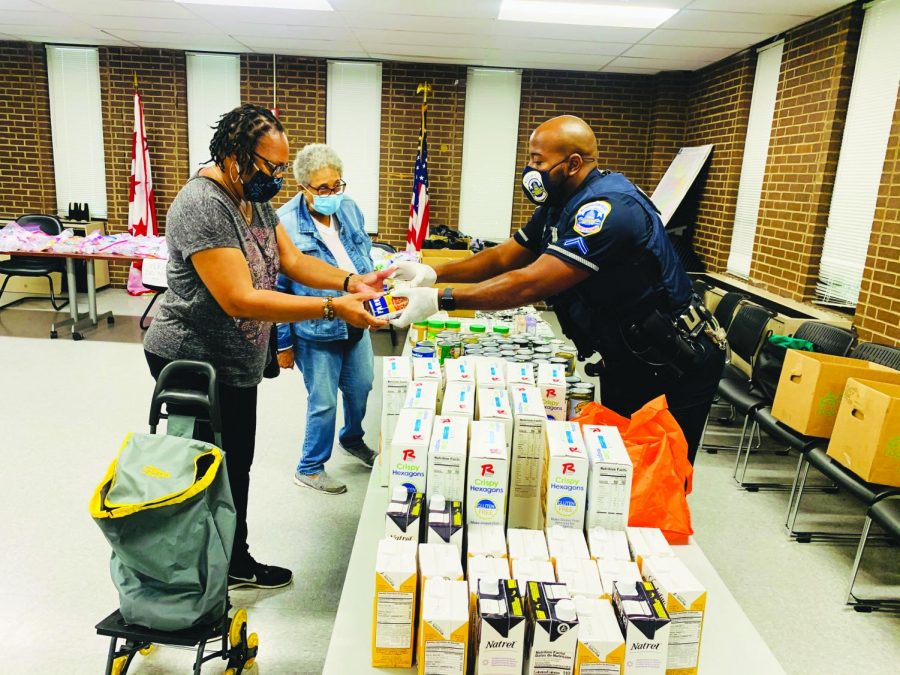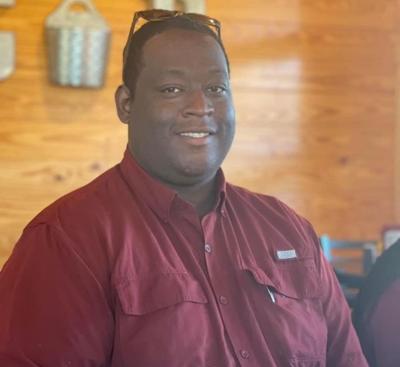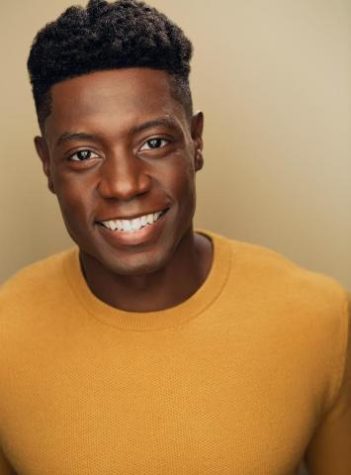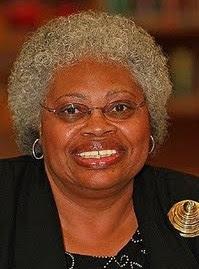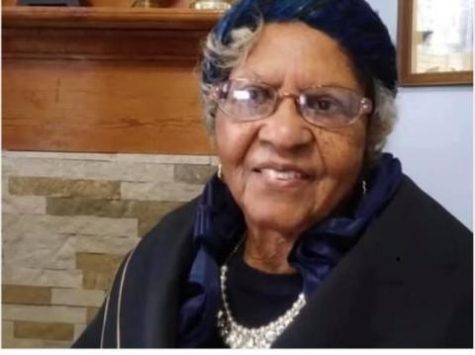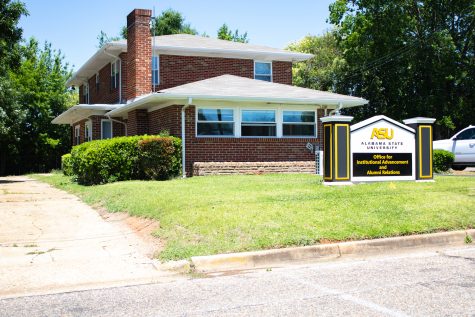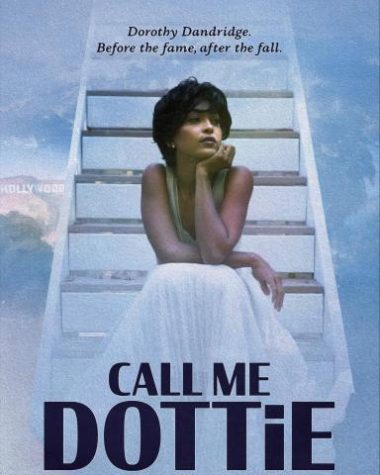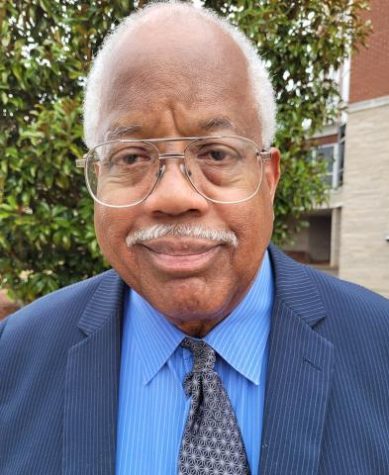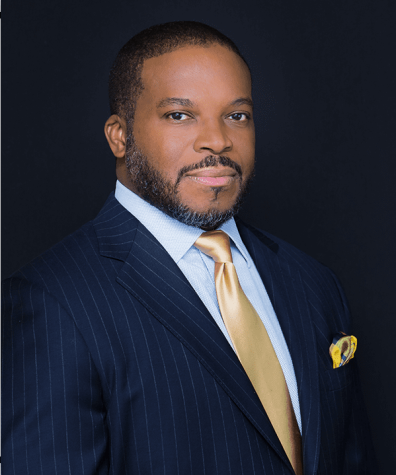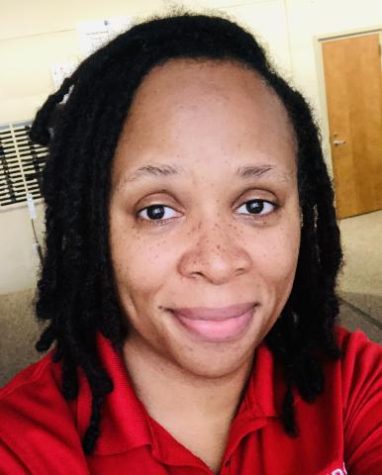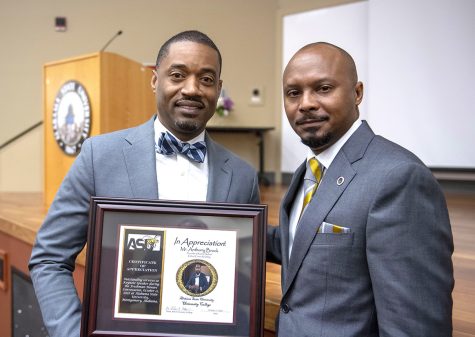Alumni Perry Morgan Works to be the Change That He Wants to See in the Community
Perry Morgan, Jr. passes out food items to people in the Washington D. C. area who have come to the food bank for necessities. Morgan said that he chooses to educate the communities that he patrols rather than to charge them. He hears them out, learns their stories, acknowledges their needs and courteously lets the public know that the Metro Police Department is not against them as people.
February 1, 2021
Amongst the African American community, there is a long running stigma against police officers. Some would argue that this conflict began during the times of slavery, between our ancestors and slave catchers. As years went by and media progressed, the hostilities between the black community and the police force became intensified and publicized due to the Civil Rights Movement, degradation of the police force in popular music and television and more recently from the Black Lives Matter Movement’s fight against police brutality.
This deeply rooted conflict, especially the events of summer 2020, has put many African American police officers in a complicated and conflicting place, torn between their community and their occupation. ASU Alumni Officer Perry Morgan, Jr. of Washington D.C. being one of those officers. Though he is stationed in the country’s capital city, where protests and critics are common, he has found a way to live contently in his truth as an educated black man and as a police officer that works with the community rather than against it.
Born in Santa Ana, Calif., Morgan was raised in a family of six with both parents, two older brothers and a twin sister. He attended Valley High School, where he was very involved with a number of organized activities such as football, track, playing two instruments in the marching band and more. He says, “I was trying to get my hands into everything back then.”
His biggest time commitment as a teenager was participating in the youth ministry at his local church. He remembers, “We would hang out often at the beach, having bonfires or at the shopping centers.” Morgan spent much of his free time with these like-minded individuals who shared his beliefs and passions. Over time, he began to consider his youth ministry to be more like an extended family. “Any day after Wednesday, we were planning stuff. We were always on the go.”
Morgan graduated from Valley High School in June 2004 and was faced with the decision of where to further his education. Initially, he planned to attend a junior college in the southern California area, but his mentor Brandon Gamble encouraged him to take a different route.
Morgan shares, “[Gamble] said to me, ‘You are one of the few that need actual attention from your professors…. Are you interested in going to an HBCU?’ And I said ‘Sure, why not.’”
Wanting to be near his twin sister, who planned to attend Oakwood University in Huntsville, Ala., Morgan decided to join the Hornet family at ASU.
While at The Hornet’s Nest, he was involved in a surplus of clubs, teams and organizations. Morgan had a stint as an athlete of the cheer team, he also worked as a photographer for The Hornet Tribune, a member of SGA, Collegiate Legislator, was a vocalist in a Christian music group called “Voices of Vision,” and also a regular participant of Student Support Services. He speaks of the latter as he says, “If it were not for them, I do not know what I would have done in college. And I stand on that to this day.”
Morgan’s favorite organizations to participate in on campus were Campus Outreach and the Fellowship of Christian Athletes (FCA), both being clubs that allowed him to meet people that shared his faith. He fondly remembers going on a camping trip with FCA, where he was able to celebrate with FCA members from other schools. He says, “It was fellowship and that was my favorite because it reminded me of home and being with my church family.”
Morgan began his time at ASU as a theatre major due to his interest in production and visual arts, but always held a dream of becoming a nurse. His sophomore year he planned to change his major to nursing but was unable considering that ASU offers Biology PreMed instead of nursing. Unsure of what to do, Morgan was inspired to pursue a career in criminal justice after spending the summer as an intern for the Atlanta Department of Parole and Probation. “It was not until after that internship that my eyes were opened to the world of criminal justice. Me wanting to help people on the social side of life,” he says, “You see so many people down on life, and I wanted to be a person that could bring them hope.”
By continuing his college education in the field of criminal justice, Morgan was introduced to the professors that he appreciates the most, Dr. Karen Taylor and Dr. Ashton. “Those are two people I admire because of the knowledge they had to give and because they were straightforward about what they had to say.” The sternness and high expectations of these professors would prepare Morgan for an unexpected, yet successful, career in law enforcement.
Considering he was always busy during his days at ASU, due to all of the clubs and jobs that he participated in, Morgan cherishes the friendships that he created from his overall ASU experience, rather than valuing just one specific memory. He says, “It is weird how we create friendships and bonds. The people that I am friends with now from college, we never hung out when we were actually in college. It was not until we were on our own that we started to connect.” As an adult, with a bit more free time, he shares that he is still in contact with his staff members from The Hornet Tribune, along with some from other organizations.
Morgan graduated from ASU with a degree in criminal justice in 2009. Unfortunately, that was a time of economic crisis for the United States government, causing some difficulties in his job search. He decided to relocate to Washington D.C., not only to be near his twin sister, but because D.C. was one of the few places actively seeking federal workers. While working as a host at a restaurant, Morgan applied for a job at the Corrections Office and to be an officer for the Metropolitan Police Department (MPD).
About a month after applying for those positions, he received a phone call from the Corrections Office telling him that he had gotten the job. “I was happy, but about thirty minutes later I got a call from MPD saying that they had good and bad news,” he shares, “They said the bad news was that if I had a job that I would have to quit. The good news was that I was to start the Police Academy that upcoming Monday.” Morgan then quit his job at the restaurant, declined the job offer from the Corrections Office and prepared himself for the Police Academy.
Coming in already behind, the academy had already been in session for a month when Morgan was introduced. Though he had to work extra hard to catch up to his peers, he remembers his time at the academy fondly. “The academy was fun,” he says, “Everyday was an experience.” Similarly to his appreciation for ASU, Morgan treasures the bonds that he created with the other officers as they endured various physical training activities. He remembers having to get maced with his peers, along with running drills called “Captain Needs Assistance” and “Hamburger Hills.” He shares, “It was one of those things where if someone was falling behind, you would have to go back and help them, kind of like a teamwork project. A different type of bond was created on those hills.”
Morgan graduated from the Metropolitan Police Academy in August 2010 and was deployed into the 7th District as a patrol officer. Though he was only there for a couple of months he dealt with domestic and petty offenses like shoplifting and public intoxication.
From there he was moved to northwest D.C., near Howard University. It was in this area that Morgan realized the importance of his role in the community as a police officer. In the NW, he dealt with a more educated and politically inclined population that often challenged his authority. These were individuals that were motivated by the fight against police brutality and questioned his allegiance to the black community as an officer. He says, “The type of policing that I was doing in the 7th District was not the same as the type of policing that I was doing in NW.” Hoping to establish trust between the community and MPD, Morgan started personal and public initiatives to give back.
From his years of experience, he has learned that many people who commit offenses are not intentionally bad people, just ones that were either put in bad situations or ones that are unaware of the laws. To combat this, Morgan chooses to educate the communities that he patrols rather than to charge them. He hears them out, learns their stories, acknowledges their needs and courteously lets the public know that the MPD is not against them as people, but instead is there to protect their well-being. This simple exchange of information and most importantly respect, allows him to build trust between the community and the PBD, which ultimately leads to a more peaceful neighborhood with lower crime rates. “Even on my troubled blocks, the people know me,” he says, “If there is a new face in the area, a regular will let them know, ‘Hey, just listen to him, he’s cool.’”
Though he has maintained a healthy and progressive relationship with the community, his role as a black police officer was criticized again during the Black Lives Matter protests of last summer. Morgan was a supporter of the protests; he encouraged the public’s use of their First Amendment right and was proud to see that the protests were overall done peacefully. Sadly, the protestors were not able to separate their perception of Morgan as a police officer from their perception of him as a black man. He says, “They are attacking the profession rather than stepping back and thinking, ‘Oh, this is another Black person.’”
Thankfully, his confidence in his faith and in his purpose allowed Morgan to not be discouraged by the nasty things that were said to him. “I think differently,” he says, “When they were saying all of that stuff, I did not think that they were talking to me, because the person that they were describing was not me.”
In some ways Morgan is thankful for the efforts of the Black Lives Matter movement as it served as a start to educating some of his Caucasian peers. He says, “For some people, it was an eye opener, but we did have those conversations.” The events of last summer prompted conversations about systemic racism, white privilege and other racial conflicts. Though he was often seen as a villain by the movement, he acknowledges that it has led to constructive changes in the workplace. He laughs as he says, “We had one hell of a summer! And I think it is far from over.”
The next major event that the MPD was plagued to deal with was the storming of Capitol Hill by extreme conservatives that took place on Jan. 6 of this year. Morgan states, “In my eleven years of experience, that was probably the scariest situation I have ever been in.” He shares that while the rioters claimed that they were marching in support of the police, their unbelievable actions did not align with their words. He says, “I remember standing there, as they were breaking into the building. And one guy says, ‘I am sorry this is happening but we are not doing anything wrong.’ He is telling me they have not broken anything or wronged the building and while he is telling me these lies, I am looking at him like, ‘Wow, maybe I am just seeing things.’” This was not a movement that Morgan was not able to be proud of and he hopes that the public understands that the MPD does not stand for that type of behavior.
As a man who is secure in his racial identity and in his occupation, Morgan encourages the advocates for police reform to do two things: to contact their local political officials or to join the police force themselves. He says, “Why don’t you be the change that you want to see.” While informing the public, he conveys that laws and policies regarding the police force differ by state and county, so the best way to make a change in your area is to reach out to your local officials. He says, “If you are going to challenge the police go to your local congressman. Go to your mayors. Go to your city councils.”
Even through these hectic past couple of months, Morgan continues to enjoy his line of work, with his favorite aspect being the community engagement. Believing that in order to protect the community, he must get to know the people that make it up. When he is not patrolling, he organizes community wide events like Easter egg hunts, community clean up days and initiatives to plant trees. He says, “That was all in my free time. It was not work and I did not have to do it. But like I said, every officer is different.” Events such as these have led him to being one of the most respected officers of the MPD, a favorite of the community and of the police department.
In 2016, Morgan was a part of a team of five who successfully deescalated a life-or-death situation. They received a call about a man pushing a stroller with a baby inside down the middle of the road, while bearing an open knife. Upon arriving at the scene the man had pushed the child out into traffic. The team was able to save the child while also safely unarming the man and placing him under custody. The fierce situation led to Morgan, along with the other officers, being awarded the 2016 Top Cop Honorable Mention and 2016 Medal of Valor. Years later, due to his community outreach and overall hard work, was awarded the 2019 Officer of the Year for the 3rd District.
Morgan continues to police in the Washington D.C. area. Though he is not married nor has children, he is still near his twin sister. He is often busy with work or interacting with the community, but in his free time he still enjoys to dabble in photography or travel when he has the opportunity.
Still trying to help as many people as possible, Morgan hopes to inspire the current students of Hornet Nation. To students who are studying criminal justice and hope to go into law enforcement, he advises them to put themselves out there and apply to anything they can find. He says, “Just apply! The good thing about law enforcement is there will always be a job open somewhere.” And to all students he advises to start looking for internships, or any type of work experience in that desired field, as soon as possible considering we are in the middle of an economic rut. “Start interning now, whether paid or not,” he says, “If you want to be one step ahead of everyone else, then intern. Remember that work experience trumps all else.” All it took was one internship for Morgan to find his life’s calling and with faith and a Hornet’s initiative, he has reached greatness!


